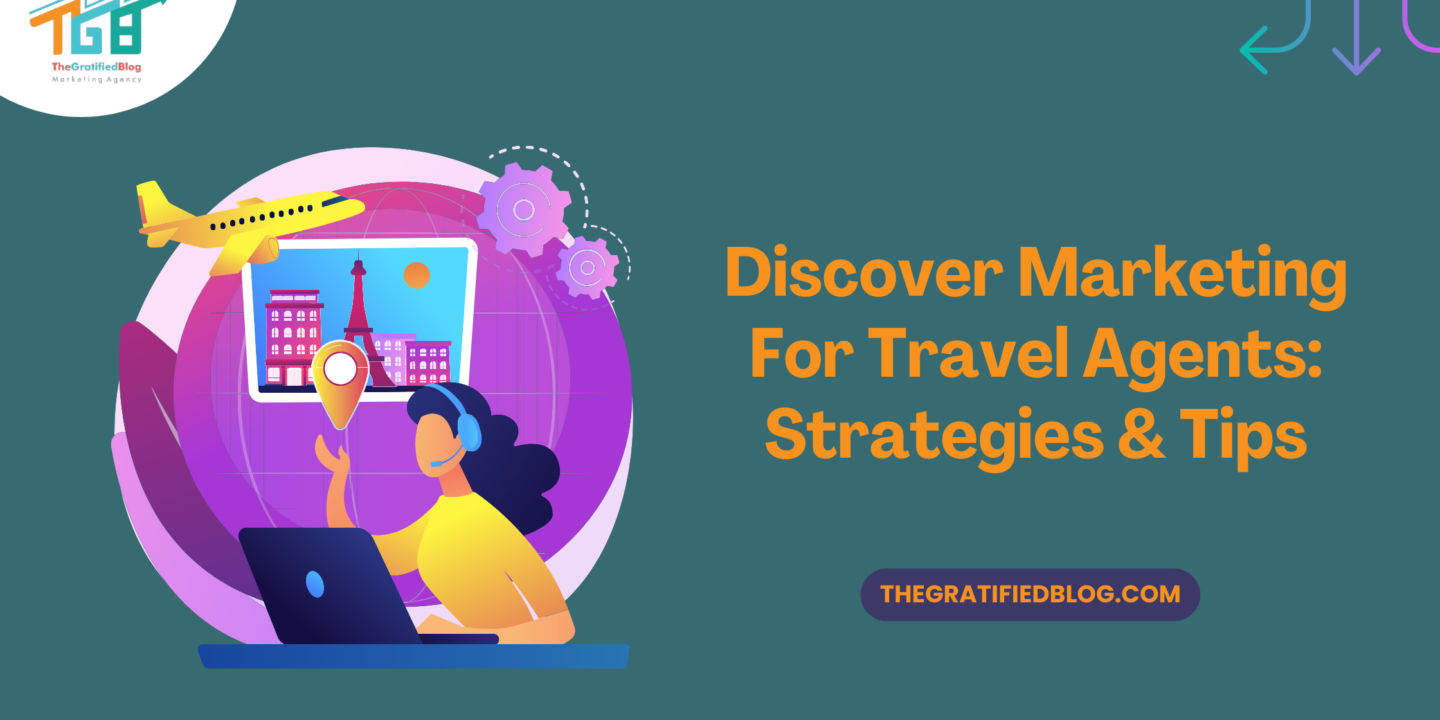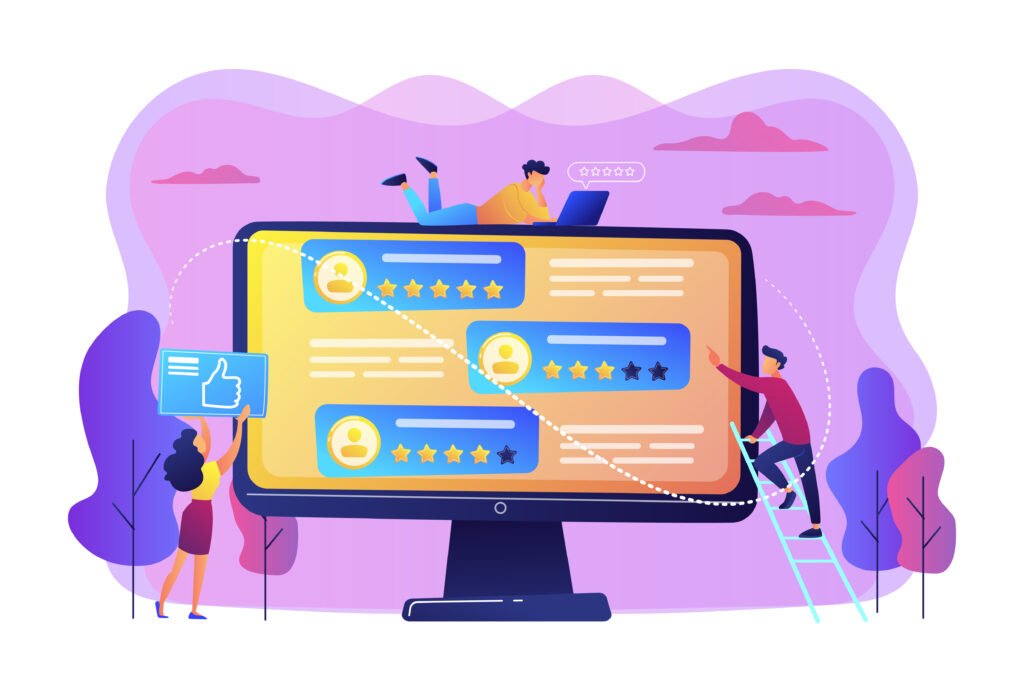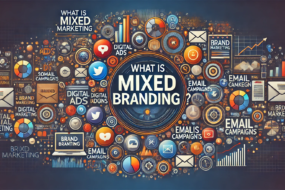
Effective marketing for travel agents is essential for success in the dynamic world of travel, where destinations evolve, trends shift, and consumer preferences fluctuate. Whether you’re an independent agent or part of a travel agency, understanding and implementing robust marketing strategies can significantly impact your ability to differentiate yourself from competitors and attract attention in a saturated market.
In this comprehensive guide, we’ll delve into the core principles, innovative strategies, and practical tips that can empower travel agents to navigate the intricacies of marketing successfully. Whether you’re looking to enhance your online presence, optimize your promotional efforts, or foster long-term customer engagement, this guide will provide you with the expertise and resources necessary to excel in the competitive landscape of travel marketing. Let’s begin this journey to discover compelling marketing insights for travel agents.
But first, let’s grasp the significance of marketing within the travel industry and acknowledge the obstacles that travel agents encounter in their marketing endeavors.
Understanding The Vital Role And Common Obstacles For Travel Agents
Importance of Marketing in the Travel Industry:
- Visibility and Brand Awareness: Effective marketing initiatives help travel agents establish and enhance brand visibility, ensuring potential customers know their services and offerings in a crowded marketplace.
- Customer Acquisition: Marketing efforts are essential for attracting new customers to the travel agency, whether through online advertising, social media campaigns, or targeted promotions. By showcasing unique selling points and value propositions, agents can entice travelers to choose their services over competitors.
- Building Trust and Credibility: Consistent and strategic marketing Aids establishing trust and credibility with prospective clients. Testimonials, reviews, and endorsements from satisfied clients can reinforce the agency’s reputation and encourage others to use its services.
- Adapting to Market Trends: Marketing informs travel agents about shifting consumer preferences, emerging destinations, and industry trends. Agents can effectively tailor their offerings and promotions to meet evolving customer demands by understanding market dynamics.
- Driving Revenue and Growth: Ultimately, effective marketing drives revenue growth for travel agents by generating leads, converting prospects into customers, and encouraging repeat business. Well-executed marketing campaigns can impact the bottom line and improve the agency’s long-term success.
Challenges Faced by Travel Agents in Marketing:
- Digital Competition: With the rise of online travel agencies (OTAs) and digital platforms, traditional travel agents face intense competition in the digital landscape. Standing out amidst the vast array of online options can be challenging.
- Fragmented Audience: Travel agents must navigate a fragmented audience across various channels and demographics. Tailoring marketing messages to diverse customer segments while maintaining a cohesive brand identity can be demanding.
- Technological Complexity: Rapidly evolving marketing technologies and digital platforms require continuous learning and adaptation. Integrating new tools and analytics can be complex and time-consuming for travel agents with limited resources.
- Price Sensitivity: In a price-sensitive market, competing solely on price can undermine the value of travel agents’ services. Balancing competitive pricing with quality service and unique experiences poses a significant challenge.
- Customer Trust and Satisfaction: Building and maintaining customer trust is critical in the travel industry. Negative experiences or reviews can significantly impact the agency’s reputation, highlighting the importance of delivering exceptional service and managing customer expectations effectively.
Having explored the significance of marketing in the travel sector and the obstacles travel agents encounter, let’s delve into the vital strategies for marketing travel agency services.
Critical Strategies For Marketing For Travel Agent’s Services
Identifying Target Audience And Market Segmentation

Recognizing the target demographic is a crucial initial stage in any marketing strategy for travel agencies. Agents can tailor their marketing efforts to resonate with specific market segments by understanding potential customers’ demographics, interests, and preferences.
Market segmentation allows travel agencies to create personalized messaging. It appeals to different customer groups, whether families seeking adventure vacations, business travelers needing efficient services, or luxury travelers looking for exclusive experiences. Through thorough research and analysis, travel agents can identify niche markets and develop targeted marketing campaigns to attract and retain their ideal customers.
Creating A Compelling Brand Identity For The Travel Agency
A strong brand identity is vital to differentiation and recognition in the competitive travel industry. A compelling brand identity communicates the agency’s values, mission, and distinctive selling points to prospective clients.
This involves developing a distinct visual identity, including a memorable logo, color scheme, and typography, that reflects the agency’s personality and resonates with its target audience. Consistency across all branding elements, from website design to marketing materials, helps to reinforce the agency’s identity and builds customer trust.
By crafting a compelling brand story and showcasing the agency’s expertise and passion for travel, agents can establish a solid emotional connection with their audience and distinguish themselves in a competitive market.
Leveraging Digital Marketing Channels

In the modern digital era, digital marketing channels provide travel agencies with potent means to connect and captivate potential clientele. Numerous digital marketing channels are available, a few of which are outlined below:
- Website Optimization for Search Engines (SEO): Ensure the travel agency’s website ranks well in search engine results pages (SERPs) by incorporating relevant keywords, optimizing meta tags, improving site speed and mobile responsiveness, and acquiring quality backlinks to enhance visibility and attract organic traffic.
- Social Media Marketing Strategies: Developing and implementing strategic plans to engage with target audiences on social networking sites like Facebook, Instagram, Twitter, and LinkedIn through compelling content, community engagement, influencer partnerships, and focused advertising initiatives to enhance brand recognition, drive traffic, and generate leads.
- Email Marketing Campaigns: Creating and executing targeted email campaigns to communicate with subscribers, deliver personalized content and offers, nurture leads, and drive conversions. Segmentation, personalization, automation, and A/B testing are critical tactics to optimize email marketing performance and foster customer engagement and loyalty.
- Content Marketing: This Tactics includes creating valuable and relevant content types such as blogs, articles, videos, and infographics to educate, entertain, and inspire target audiences. Content marketing aims to attract, engage, and retain customers by providing helpful information, showcasing expertise, and building trust and credibility with potential travelers.
Utilizing Traditional Marketing Methods
Although digital marketing has gained prominence, traditional marketing methods still play a valuable role in reaching specific travel market segments. Some of the conventional marketing methods are mentioned below:
- Print Advertising: It involves placing advertisements in print publications such as newspapers, magazines, brochures, and travel guides to reach audiences who prefer traditional media channels. Print advertising allows travel agencies to showcase destination highlights, tour packages, and special promotions to a targeted audience in a tangible format.
- Direct Mail Campaigns: Send targeted promotional materials, brochures, postcards, or catalogs directly to potential customers’ physical mailboxes to grab their attention and generate leads. Direct mail campaigns can be personalized, highly targeted, and trackable, allowing travel agencies to reach specific demographics or geographic areas with tailored messaging.
- Television Advertising: Broadcasting commercials on television networks enables travel agencies to reach a broad audience and showcase their services visually. Television advertisements can be strategically placed during relevant programming to target specific demographics or aired nationally to reach wider audiences.
- Radio Advertising: Advertising through radio channels allows travel agencies to reach listeners during their daily commute or while engaged in other activities. Radio ads can be tailored to specific time slots and stations to target particular audience demographics, making them a cost-effective option for reaching local or regional markets.
Incorporating Customer Reviews And Testimonials In Marketing Efforts

Testimonials and customer reviews significantly influence establishing trust and credibility in the travel industry. Favorable client feedback and testimonials carry significant weight on social proof of the agency’s quality of service and can influence potential travelers’ purchasing decisions.
Travel agencies can encourage customers to leave reviews on platforms such as Google My Business, TripAdvisor, and Yelp and showcase them prominently on their websites and marketing materials.
Responding to positive and negative reviews demonstrates transparency and a commitment to customer satisfaction. By incorporating customer feedback into their marketing efforts, travel agencies can leverage the authentic experiences of past clients to attract new business and build a loyal customer base.
Offering Special Promotions And Deals To Attract Customers
Special promotions and deals are effective marketing strategies to attract travelers to a specific agency. These promotions create urgency and encourage customers to book, whether through discounted packages, time-limited offers, or exclusive perks.
Travel agencies can use promotions strategically to boost sales during peak booking periods, fill inventory for less popular destinations or travel dates, and attract new customers. By aligning promotions with business goals and customer preferences, agencies can generate excitement, increase bookings, and create memorable experiences.
Incorporating special promotions and deals allows travel agents to incentivize action, drive customer engagement, and foster loyalty, ensuring a steady flow of bookings and sustained business growth.
Implementing Effective Customer Relationship Management (CRM) Systems
Efficient customer relationship management (CRM) is vital to nurturing relationships with existing customers and maximizing lifetime value. CRM systems allow travel agencies to organize customer data, track interactions, and personalize communication at every customer journey stage.
By capturing customer preferences, booking history, and feedback, Agents can customize their marketing endeavors to fulfill individual needs and provide personalized recommendations and offers. CRM systems also enable agents to automate routine tasks, streamline workflows, and measure the effectiveness of their marketing campaigns.
By investing in a robust CRM platform, travel agencies can strengthen customer relationships, increase customer satisfaction, and drive repeat business.
Measuring And Analyzing Marketing Performance Using Key Metrics

Measuring and analyzing marketing performance is crucial for Improving strategies and maximizing return on investment (ROI). It involves tracking critical metrics like website traffic, conversion rates, email open rates, and customer acquisition costs; travel agencies can evaluate their marketing efforts’ effectiveness and identify areas for improvement.
Data-driven insights enable agents to make informed decisions, Optimize resource allocation, and enhance their marketing strategies over time. In addition to quantitative metrics, qualitative feedback from customers and industry partners can provide valuable insights into marketing initiatives’ perceived value and impact.
Travel agencies can continuously monitor and analyze marketing performance to adapt to changing market conditions, maintain a competitive edge, and foster sustainable expansion.
These key strategies form the foundation of a comprehensive marketing approach for travel agencies, helping them to allure, captivate, and retain clientele within a competitive and dynamic industry landscape.
Conclusion
Now that you’re acquainted with the essentials of marketing for travel agents, you’re equipped to navigate the dynamic landscape of the travel industry confidently. Travel agents can effectively connect with their audience, drive bookings, and foster long-term customer relationships by leveraging digital and traditional marketing techniques alongside strategic promotions and targeted messaging.
As you commence your marketing endeavors, remember to stay adaptable, continually assess the effectiveness of your strategies, and be ready to innovate to meet travelers’ evolving needs and preferences. With dedication and creativity, you can position your travel agency for success in this competitive market.
If you still have any questions related to the blog, please feel free to leave them in the comments section. We’re here to respond to any inquiries you may have.
Thanks for reading:)








No Comments